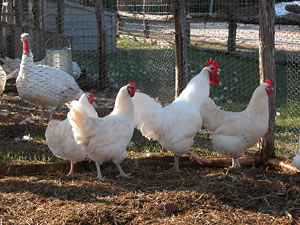World should mount 'pre-emptive' strike against bird flu
The 1918 flu pandemic caught the world by surprise when it killed up to 40 million people, but experts are informed enough today to mount a pre-emptive strike against another such catastrophe, a leading bird flu scientist said Wednesday.

The H5N1 bird flu virus has emerged as a possible candidate to become the next pandemic flu strain.
Its unusual behavior has scientists worried. It can jump directly from birds to people, has the potential to spread over a large geographic distance via migratory birds and has already proven itself a menace to the world's huge domestic poultry industry.
But unlike in 1918 and during the smaller pandemics that followed in 1957 and 1968, each killing more than 1 million people, the world is better armed with more knowledge and resources, said John Oxford, a professor of virology at Queen Mary's University of London.
"We do have new antiviral drugs, we do have new generations of vaccines, we do understand to some extent how the virus is transmitted," he said at the opening of a two-day bird flu conference in Singapore.
"I think most importantly, which we did not have ever before in those great pandemics of the last 20th century ... we did not have the knowledge of where that virus came from."
The H5N1 virus began ravaging Asian poultry stocks in late 2003 and has since killed at least 113 people worldwide.
Most human cases have been linked to contact with infected birds.
Experts fear the virus will mutate into a form that easily spreads from person to person, potentially sparking a global pandemic.
More than 500 scientists, health experts and policy makers from 52 countries are scheduled to attend the Asia Medical Forum in Singapore organized by The Lancet medical journal, reports the AP.
I.L.
Subscribe to Pravda.Ru Telegram channel, Facebook, RSS!


